Eight key lessons from Ukraine being carefully studied by Xi
There is no question that the Chinese president is creating the option for the PRC to attack Taiwan, using Ukraine as a test case on how — and how not — to attack a neighbour.
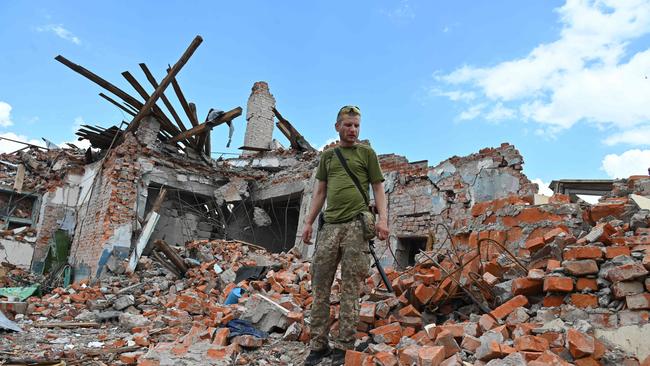
“Taiwan is not a sovereign country,” was the curt response from the Ministry of Foreign Affairs in Beijing. How could Albanese have such a “poor grasp of political realities”, the China Daily wondered, “a parallel cannot be drawn between Ukraine and the Chinese island”.
In fact, no country is watching the Ukraine war more closely than China. The country’s huge intelligence system, the People’s Liberation Army, a vast number of think tanks and university departments and the Chinese Communist Party itself are studying the war, looking to extract strategic lessons about the role of the West, about Russia’s resilience and the conduct of the war, and about how Ukraine is mounting such tough resistance.
Beijing’s obsession with the “lessons” from Ukraine is to help better position the PRC in its strategic competition for dominance with the United States. Will China have to fight the US to take control of Taiwan? If so, does the Ukraine experience offer insights on how to prepare for, and fight, that conflict?
Crucially, when should Beijing attack? Does the Ukraine war bring forward or push back the time when a conflict across the Taiwan Straits is most likely to deliver the mainland the victory it wants?
Xi Jinping is surely also comparing his leadership with that of Vladimir Putin. A week after becoming China’s President in March 2013, Xi visited Putin in Russia. The two leaders have met around 30 times since then. Xi in Moscow in 2019 described Putin as “my best friend and colleague”.
But Russia is a difficult friend for China. Putin is happy to make Russia a global pariah to sustain his domestic power base, but Xi’s interest is to dominate the global system, not simply smash it. Xi will be drawing his own lessons about how to harness nationalistic enthusiasm for a war.
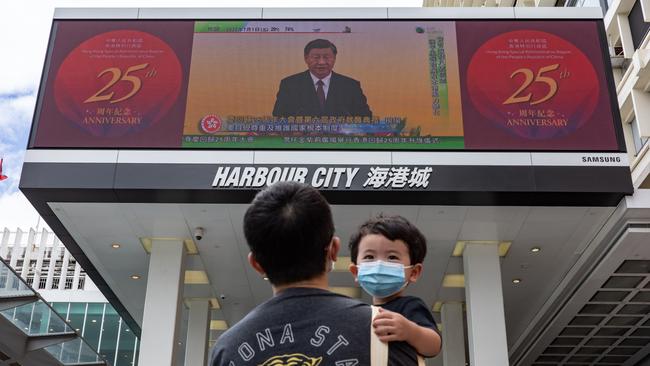
The consensus position in China is that the West, in particular the US, forced Russia into attacking Ukraine. China’s Foreign Minister, Wang Yi, set out this case in February a few days after the invasion: “Given NATO’s five consecutive rounds of eastward expansion, Russia’s legitimate security demands ought to be taken seriously and properly addressed.”
A recently released ASPI study examined the huge social media output of PRC embassies around the world on Ukraine. Overwhelmingly, those posts blamed the West, called for peace, repeated Russian propaganda about the war (for example, calling it a “special military operation”) and promoting a conspiracy theory that the US had biological weapon labs in Ukraine, linking these to earlier propaganda attempts to say it was the US military that brought Covid-19 to Wuhan.
In Xi’s China there is little chance to take a different view from the official line. Chinese media has reported the war largely from Moscow’s perspective, showing little of the destruction wrought by Russian artillery and missiles on Ukrainian civilians.
Even in China, not all social media can be controlled. The journal Foreign Affairs reports that after the Russian attack “some anti-Russia Chinese netizens began rehashing the unfairness of the 1858 Treaty of Aigun, which ceded roughly 230,000 square miles (600,000sq km) of Chinese territory to Russia”.
That’s a reminder that Russian territorial expansion has benefited from Chinese weakness in the past. Today the power balance is reversed. China will benefit from a more dependent Moscow, able to supply energy and commodities. Xi won’t abandon Putin.
Judging by the alarmed tone of Chinese media coverage, the party leadership has been surprised by the extent to which the US and key allies have provided Ukraine with weapons, training and intelligence assistance.
The presence of Australia, Japan, South Korea and New Zealand at the NATO Madrid summit, the AP4 group, is being written about in China as NATO’s attempt to operate in the Indo-Pacific. The China Daily editorialised at the end of June: “NATO’s insidious creep into the Asia-Pacific on the bases of AUKUS, the Quadrilateral Security Dialogue and various security treaties between the US and its allies will gather pace.”
We should see Beijing’s concern as a positive sign. If anything will give Xi pause to doubt the wisdom of an attack on Taiwan, it will be the collective willingness of the democracies to support Taipei.
Xi’s top strategic priority is to isolate Taiwan, to make sure it doesn’t have the international connections Kyiv has, and to weaken any attempts like AUKUS and the Quad to build new security structures in the Indo-Pacific.
Another sustained theme in PRC commentary is that ASEAN should stay neutral in a strategic competition between China and the US. Beijing sees strength in Indo-Pacific political weakness.
It’s possible the perception of stronger democratic support for Ukraine will prompt Xi to conclude that an attack on Taiwan is advisable sooner rather than later – attempting to secure Beijing’s strategic aim before Taiwan gets militarily stronger, or the democracies provide more strategic support. The important point is that Xi is not yet deterred from an attack. Offsetting the better performance of NATO and the Pacific allies is a deep CCP conviction that America is in inevitable decline and that the West will ultimately lose heart helping Ukraine.
Another Ukraine lesson Beijing is absorbing is that Russia, with a far weaker economy than China, is surviving sanctions. Most of the population supports Putin and what dissent there is can be stifled. At all times the Chinese Communist Party’s chief obsession is staying in power. So far, Ukraine shows it’s possible to mount a major war opposed by the international community while strengthening repression domestically.
From a PLA perspective, Taiwan presents different military challenges. An island 161km off the Chinese coast will be harder to attack than Ukraine, but it will also be easier to cut off from air and sea resupply. There are also no easy ways for civilians to leave the island once conflict starts.
Here, I suggest eight strategic and military lessons from the Ukraine war that will be being carefully studied by China’s security hands.
First, Russian intelligence failed to read Ukraine’s determination to resist the invasion and major Russian efforts to build support in Ukraine with planted agents came to very little. Beijing will redouble efforts to build a fifth column infrastructure in Taiwan. Taipei has a huge counterintelligence task on its hands.
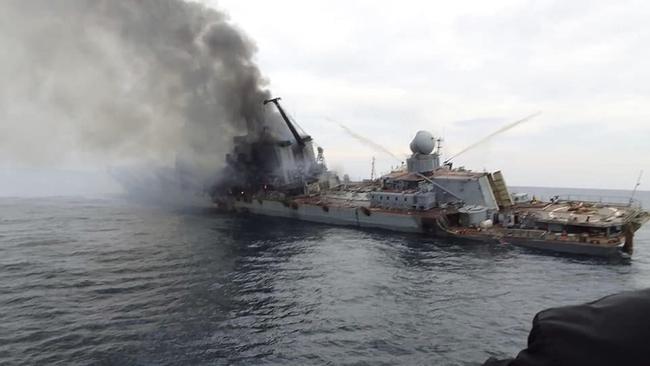
Second, Russia’s failure to kill or capture Volodymyr Zelensky was a major tactical blunder. Zelensky has become the global embodiment of Ukrainian resistance. China will want to prevent a parallel in Taiwan.
The PLA will be thinking about how it can quickly decapitate Taiwan’s political leadership. Expect special forces operations and precision missile strikes.
Third, Russia’s inability to ground the Ukrainian air force and to comprehensively flatten Kyiv’s air defences will shape PLA thinking about what Taiwanese military bases need to be targeted early. Overwhelmingly, the need here is for precision strike weapons.
From open-source literature it’s impossible to know how advanced the PLA is in its capacity to find and hit precise targets. We know the Russians are dreadful at it and have reverted to Soviet-style indiscriminate bombardment. My guess is that the PLA will want in the first instance to avoid indiscriminate targeting of civilians, meaning there will be a major investment in building stocks of precision strike weapons.
Fourth, China will observe that Russian propaganda has largely failed to persuade the world about the rightness of its cause. Based on Australia’s experience of the past few years, Chinese Communist Party propaganda aimed at foreign countries is even worse than Russia’s efforts. We should expect to see strenuous Chinese efforts to lift its game in international propaganda terms.
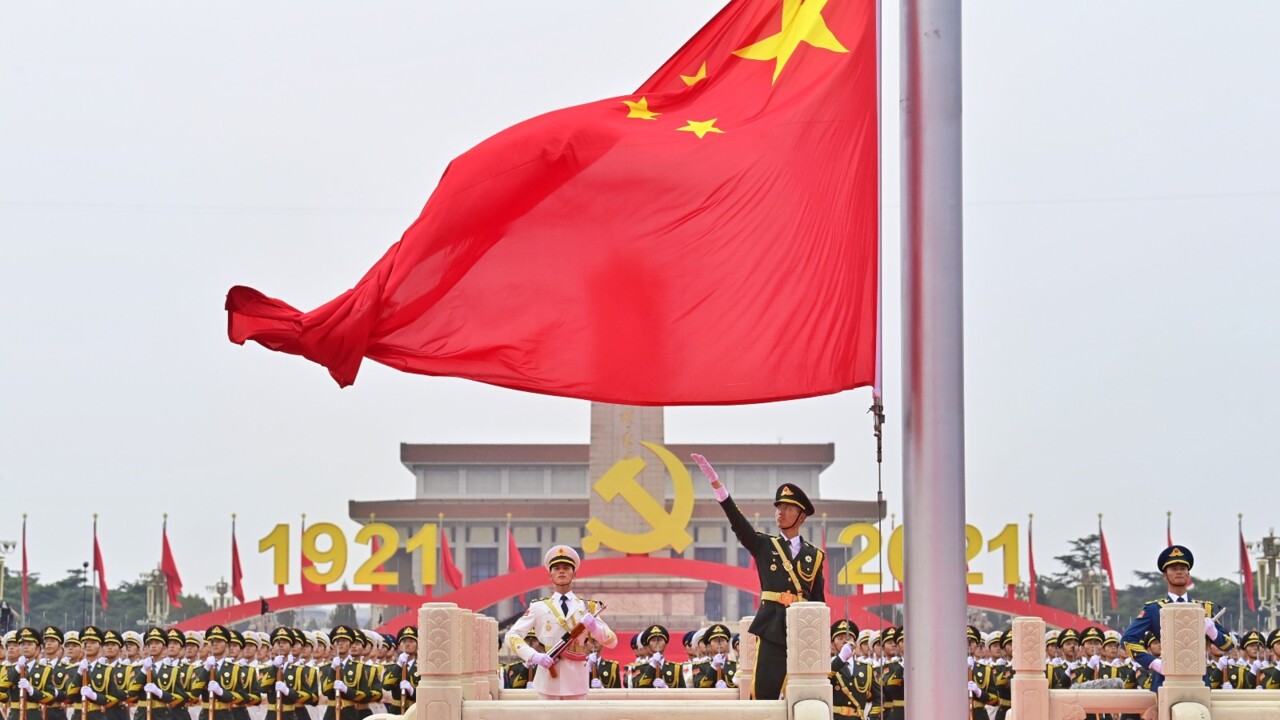
Fifth, Beijing may now expect that the Taiwanese will put up a fight and not welcome their communist attackers. The more Taipei can do to build that expectation, the more Beijing may hesitate to attack.
A key PLA task will be to shut down communications from Taiwan to the rest of the world. The generals will not want the war to be broadcast. Social media won’t work if Taiwan’s underwater IT cables are cut.
Sixth, the sinking of the Russian cruiser, the Moskva, and Ukraine’s effective defence of the port city of Odesa shows amphibious operations against well-armed and determined defenders are difficult. How does China overcome this situation?
Much like Russia’s abortive air assault with paratroopers who failed to take over Hostomel airport northwest of Kyiv, it is likely the PLA may use air assaults to take over Taiwanese air bases and sea ports in an effort to secure a safe landing for heavier forces coming by sea. What Western strategists have most often thought would be an attack from the sea may well involve more special forces from the air.
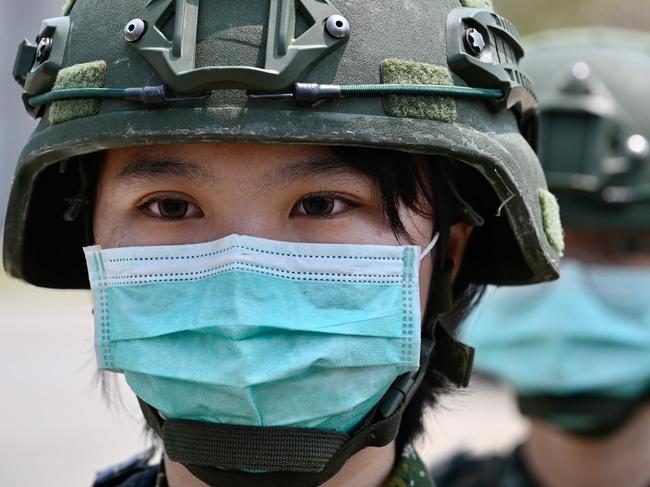
Taiwan should be investing heavily (as should Australia) in low-cost smart sea mines and in land-based mobile missile systems like Ukraine’s R-360 Neptune anti-ship missile, which hit the Moskva. Note that after the Moskva’s sinking, Russia shelved expected plans for a maritime assault on Odessa.
Seventh, don’t run out of missiles. It seems clear that Russia is largely out of stocks of modern weapons and has resorted to using 1960s-vintage Kh-22 anti-ship missiles. These are inaccurate weapons, originally designed to carry nuclear warheads where precision was not necessary. China has some significant weapons stockpiling to complete.
Eighth, a final lesson for China is to reduce its economic dependence on the West, in holding US Treasury bonds and other assets that could be frozen in sanctions action. That’s exactly what Beijing is doing. The PRC’s holdings of US Treasury securities were sold down 3.5 per cent in April to the lowest level in 12 years. But Beijing still holds more than a trillion dollars of US Treasury bonds, a critical vulnerability in event of Western sanctions.
There is no question that Xi is creating the option for the PRC to attack Taiwan, using Ukraine as a test case on how, and how not, to attack a neighbour. The West’s democracies’ response to Russia’s behaviour in Ukraine therefore helps to deter the PRC’s aggression in the Indo-Pacific, but quite possibly not for long.





The China Daily’s sharply worded editorial criticising Anthony Albanese at the time of the NATO summit was sparked by the Prime Minister comparing Ukraine and Taiwan. Russia had become a “global pariah” because of its “strategic failure” in Ukraine. Asked if China should take heed of that, Albanese said “attempts to impose change by force on a sovereign country meet resistance”.